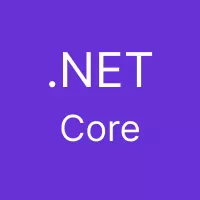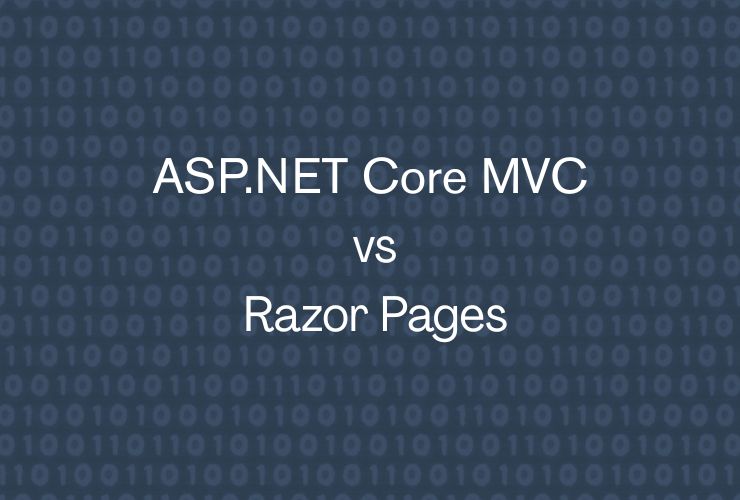Most common two frameworks by ASP.NET are Razor Pages and MVC (Razor Pages vs MVC), which are both extremely flexible and can be used for the development of extremely robust applications according to your needs. Determination of which is better depends upon project complexity, team expertise, and scalability. Here’s a deep comparison between the two for you to determine which one works the best for your project.
Getting to Know Razor Pages
Razor Pages is another newer, page-focused framework brought into the forefront with ASP.NET Core. Using this framework, application functionality gets organized around single pages, hence making development straightforward. A Razor Page consists of two files.
- A.cshtml file containing the UI content.
- An associated.cshtml.cs file handling page-specific logic and processing of HTTP requests.
This structure integrates logic and UI very close, so it’s much easier to work with small applications or simple workflows. The Razor Pages project is useful in projects that require an emphasis on simplicity and speed of development.
Key Advantages of Razor Pages
Razor Pages has much less boilerplate code compared to MVC. This means that development becomes faster and streamlined.
Ease of Use: The page-centric development model is easy to work with and simple, especially for developers moving from traditional web development models.
Readability: Because Razor Pages bring logic and UI together, code readability and maintenance improve.
Best Uses of Razor Pages
- Small to medium-sized application building
- Building simple single-page functionality such as dashboards or forms
- Projects that need to be done in a very short period and with less resource
Best Uses of MVC
The MVC framework is an architectural pattern model that splits up an application into three fundamental parts:
- Model: This includes data and business logic.
- View: The user interface and presentation layer
- Controller: It deals with the input coming from users, processes the requests, and ties together Model and View
Separation of Concerns will make it possible for developers to work on parts of the application separately, enhancing scalability and maintainability.
Main Advantages of MVC
- Separation of Concerns: MVC architecture presents a clear and demarcated depiction of an application’s logic, its UI, and data in a much organized and testable manner.
- Flexibility: Workflows and business logic can easily be customised to fulfill even the most complex requirements.
- Team Collaboration: The decoupled architecture of MVC would let members of a team work on Models, Views, or Controllers separately without any kind of conflicts.
Best Use Cases for MVC
- Enterprise-level application development.
- Highly customised projects or applications that would require special workflows.
- Applications which would take lot of time for growth.
Razor Pages vs MVC
Here are the comparison points of the differences between Razor Pages and MVC against some very important aspects:
1. Architecture and Complexity
Razor Pages: It is designed to make functionality organize itself around individual pages, which diminishes complexity when used in a small scale of applications.
MVC: It has separate folders for Models, Views, and Controllers, which help in better organization for large projects, but increases complexity for new users.
2. Speed of Development
Razor Pages: Suitable for rapid development of small applications with minimal setup.
MVC: It requires more setup and planning, which may delay the development process for smaller applications.
3. Scalability
Razor Pages: Suitable for small to medium-sized applications, but may start becoming unmanageable as application complexity increases
MVC: Built with scalability in mind and better suitable for feature-rich enterprise-level applications
4. Performance
Razor Pages: The best performance for the lighter applications that it gives owing to its very streamlined architecture
MVC: The performance equivalent, but possibly with additional overhead for more complicated cases
5. Learning Curve
Razor Pages: Much easier to learn especially for newer developers or teams who have limited experience with ASP.NET.
MVC: Steeper learning curve, yet it allows greater flexibility and control for seasoned developers.
Which Approach Should You Choose?
You should choose Razor Pages if
- Your application is small to medium-sized with simple requirements.
- You value simplicity and fast development.
- Your team is not very experienced with ASP.NET or does not like a complex framework.
Use MVC if:
- Your application is big and complex with many interconnected components.
- You require a modular, scalable architecture.
- Your team already has experience with ASP.NET and can accept a more challenging learning curve.
Conclusion
Razor Pages and MVC are two of the best frameworks for developing web applications for ASP.NET. Your choice of one over the other will greatly depend on how large, complicated, and scalable your project might be. Small applications where the aspect of speed and simplicity takes priority have the right spot for Razor Pages, but the larger the complexity, with more modularity, the higher the use for MVC.
Based on your project requirements, you would choose the best approach that is suitable for your needs and would lead to a successful development process.














